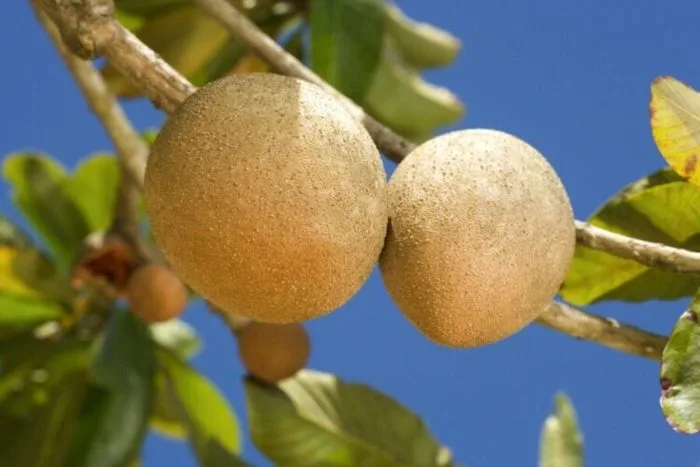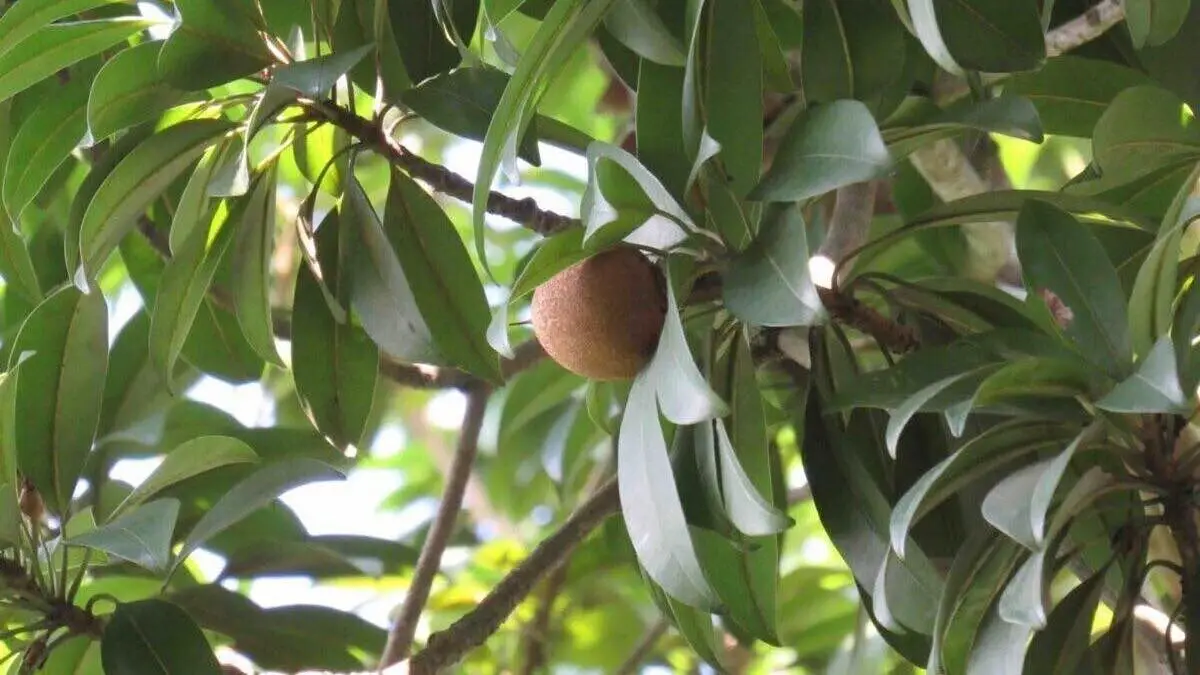Table of contents
Mamey Sapote Tree
The mamey sapote tree is an ornamental evergreen that is native to Mexico and Central America. Indeed the fruit is the national fruit of Cuba. The scientific name for this plant is the Pouteria Sapota.
The two main varieties of mamey sapote are firstly the Magana which is larger, with dark, salmon coloured flesh and the Pantin which is smaller and has orange flesh. In addition, the pantin has a sweeter flavour.
Mamey Sapote Tree Size
This tree will normally grow to be around 40 feet (12 metres) in height. However, it may grow more than 60 feet (18 metres) tall in optimal growing conditions.
Mamey Sapote Tree Height
The width of the canopy can also exceed 60 feet (18 metres).
Mamey Sapote Tree Care
Firstly, you should plant your tree in full sun. This plant grows particularly well in the tropics, where it originates from.
Plant in well draining soil. The optimum soil ph is between 6 and 7 but this plant can tolerate highly alkaline soils of up to 8.4.
Propagation
Trees planted from seed take 7-10 years to produce fruit, versus 3-5 years with a grafted tree.
Fertilising
This is not a ‘hungry’ fruit tree. We apply an organic fertiliser just once each year, during the dry season.
Pruning
The main reason people prune is to keep the tree at a manageable height for harvest.
Watering
Water your tree regularly throughout the ‘dry’ season. However, during the ‘wet’ season they will be fine without any additional water. If you have clay soil you may need to apply more water less often than if you have sandy soil.
Pests and Diseases
One of the biggest problems for this tree can be root rot. So when you are mulching around your tree, make sure you do not mulch right up against the trunk. Always leave a few inches around the trunk so it can dry out between waterings.
Mamey Sapote Tree FAQs
Grafting is the most popular way of propagating these trees. The best type of grafting to use is inarch grafting.
The main reason people prune is to keep the tree a reasonable height for harvest.
The mamey sapote is known to live as long as 100 years.
Mamey Sapote Tree Pollination
The small white to creamy-white sub-sessile flowers are hermaphrodite with 5 stamens, 5 staminodes and a single inferior ovary. Inflorescences are ramiflorous in fascicles of 5-6 in the axils of fallen leaves. Pollination is achieved by honey bees and other insects. Cross pollination improves fruit set.
Mamey Sapote Tree Fruit
The fruit is about 10 to 25cm (4-10in) long and 8 to 12cm (3-4in) wide. It also has flesh ranging in colour from pink to orange to red.
However, outside it has brown skin and a texture somewhat between sandpaper and the fur on a peach in coarseness. Inside the fruit’s texture is creamy and soft. Indeed the flavour has been described as a mix of sweet potato, pumpkin, honey, prune, peach and almond.

Eating The Fruit
The fruit can be eaten fresh, but peel off the skin before consuming. It can make a delicious ice cream. It is also used in milk shakes and smoothies, ice cream, mousses, etc.
Health Benefits
Indeed there are many health benefits of eating the mamey sapote. Accordingly it helps strengthening the immune system, improving digestion, promoting weight loss and improving your cardiovascular health.
Fibre
Furthermore with 9.5 grams of fibre in each cup (175 grams), eating mamey fruit is a great way to keep you regular.
Weight Loss
The high fibre content in the mamey sapote also creates a feeling of fullness. Consequently, this means you are less likely to snack between meals, making it a plus for wight loss.
Immune System
Finally, the high amount of vitamin C in this fruit is sure to enhance your immune system. So it is well worth growing the mamey sapote tree.
Mamey Sapote Tree for Sale
If you live in the tropics, why not consider supporting a local nursery? They often have what you need and a lot more besides. Also, often local nurseries sell products suited to the local climate.
Mamey Sapote Tree Bunnings
This plant can be purchased from Bunnings, either in a small pot from the nursery section or in seed form.
Other Tropical Fruits
- Black Sapote
- Custard Apple
- Dragon Fruit
- Grumichama
- Guava Tree
- Jaboticaba
- Kumquat Tree
- Mulberries
- Natal Plum
- Passion Fruit
- Paw Paw
- Rambutan
- Star Apple
- Watermelon



Comments
2 responses to “Mamey Sapote Tree: Your Complete Guide”
[…] Mamey Sapote […]
[…] Mamey Sapote […]